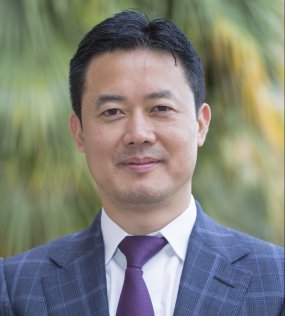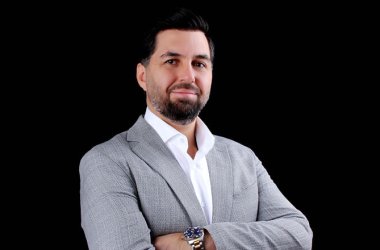Despite the challenges posed by a US entity list ban, Huawei’s President in the Middle East says that the region remains a strategic geography for the company in which it works closely with governments and the private sector to advance security, collaboration, and innovation for the digital era.

The comments by Charles Yang, President of Huawei Middle East, come at a time when Huawei remains the world’s largest telecommunications-equipment manufacturer, a top global smartphone and smart device brand, and a digital solutions provider to thousands of companies in sectors like finance, transportation, energy, and government. Within the region, ICT is also becoming a national basic infrastructure as technologies like 5G, AI, and cloud computing act as drivers for digital transformation.
According to Yang, Huawei has been leading 5G expansion in the Middle East as part of the first wave of deployments worldwide, and will focus on vertical industry, ecosystem, and 5G talent development in 2020. This has been powered by investments of USD4 billion in 5G research since 2009. Huawei is also bringing its 5G OpenLab concept to the Middle East, providing the local ICT sector with an environment in which it can experience, innovate, and verify the latest 5G applications with operators and partners.
“The downward pressure on many regional economies and even the global market has intensified in 2019 and the start of 2020. All of us need to dig deep into the opportunities presented by digital transformation. Most organisations across the Middle East now recognise the value that can be created by this transformation, and as such, it is a key region for Huawei in terms of technology collaboration, innovation, and developing business models suited to the digital era,” said Yang.
As a result of its R&D investment focus, Huawei has been able to lead the deployment of 5G technologies globally with more than 700 cities and 228 Fortune Global 500 companies having chosen Huawei as their digital transformation partner. As part of its efforts to lead new technology ecosystems, Huawei also recently released its Huawei Mobile Services (HMS) Core 4.0 platform, marking an important milestone for Huawei in building a set of applications and services for its consumer device ecosystem.
Central to its R&D strategy has been a long-term knowledge transfer program to develop talent in the Middle East, for the Middle East, according to Yang. That requires technology leaders working with customers, partners, developers, industry alliances, and standards organisations to build an interdependent ecosystem that fosters shared growth. For its part, Huawei’s flagship Seeds for the Future program and annual ICT Competition program will continue in the Middle East in 2020 and support creativity among ICT students to increase national competitiveness.
Alongside 5G innovation and talent development, Yang recognised that cybersecurity does remain a vital issue for the region’s ICT industry.
When asked about the challenges posed to Huawei specifically by the current US administration, Huawei’s President in the Middle East responded: “Our Rotating Chairman, Eric Xu, recently observed that some state actors may continue to suppress the development of leading technologies. They are choosing to build walls rather than connecting people and ideas. Despite concerted efforts by some to keep us down, I think many of us feel a renewed sense of purpose and value at Huawei.”
He added that Huawei is only an equipment supplier and that accessing customer networks without their authorisation and visibility would be impossible. On a practical level, Huawei does not have the ability to bypass carriers, access control, and take data from their networks without being detected by all normal firewalls or security systems.
“Today cybersecurity is an issue for all countries, governments, and companies. It is also a journey—not a destination. As such, we need measures in place applying to telecom operators and equipment suppliers so that there is an objective, verifiable basis for knowing which products and services are worthy of the public’s trust. Our customers and us see this as a strategic priority,” added Yang.
The Middle East President noted that Huawei has long committed to helping partners in the region to address cybersecurity challenges and has been a partner of choice for telecom carriers for 5G network development through a broad range of end-to-end solutions. Yang also said that Huawei is ready to sign no-spy, no-backdoor agreements with any and all entities in the Middle East region.
In the last few months, Huawei has been approved to continue supplying 5G technologies in markets such as the UK and the European Union, with countries like Germany and France also accepting Huawei 5G despite US pressure. Abraham Liu, Huawei Chief Representative to the EU Institutions, has confirmed that Huawei is working with European governments to develop common standards to strengthen the security and reliability of those networks.
Huawei has also confirmed that it has no cooperation with the company Crypto AG. A recent report by the Washington Post noted that the CIA used Crypto AG to covertly access telecom networks worldwide, spying on other countries for decades. Australia cybersecurity expert Hank Wolfe has also documented how the US National Security Agency rigged encryption systems sold by Crypto AG, enabling the agency to read the coded diplomatic and military traffic of more than 120 countries.





